Psychiatry practices have been one of the slowest to adopt electronic medical records. In 2015, only about 61% of psychiatrists used EHR systems ( MedCity News) in their practices.
Though these numbers have gone up over recent years, most mental health practices still prefer using paper records due to how EHR systems affect privacy. Their concern comes from therapists’ notes that contain so much of patients’ personal information and the nature of that data, which can make individuals feel vulnerable.
The truth is that if used correctly, a psychiatry EHR can provide all the necessary privacy features while enabling you to perform tasks more efficiently. For example, most mental health patients require 15 or more visits ( American Psychological Association) spread out across a few months for their treatment. For this type of treatment that often requires long term monitoring, effective record-keeping is all the more critical, something not efficiently achieved in a paper-based setup.
Thus, for anyone administering or working in a mental healthcare environment, it’s well worth the research to look at the options for behavioral health software. The right mental health EHR system can not only streamline administration but improve patient care and improve your bottom line.
We discuss how to identify the most valuable one for your practice, as well as some options on today’s market.
Also Download: Buying Behavioral Health EHRs in 2020
Signs Your Behavioral Health Practice Needs an EHR
- You don’t keep up with paperwork
- You often look for notes of past sessions and struggle to get a comprehensive view of a patient’s current situation and devising the best treatment plan
- You don’t have a digital backup of your records in case of data loss
- You’re wasting time on small tasks including:
- Managing patients’ repeat prescriptions
- Updating your patient records based on scribbled notes
- Waiting for patients who arrive late because they forgot about appointments
- Billing
- When consulting with other healthcare professionals, there are obstacles in sharing patient records
- You don’t have a healthy cashflow
These are just some of the reasons psychiatrists, counselors, psychologists, and mental health clinics turn to the power of psychiatry EHR and why it’s a wise investment.
Benefits of Psychiatry EMR
As soon as the implementation of the new software, therapists can enjoy benefits that include the following:
- Increased cash flow thanks to automated billing tasks
- Easy collaboration with other healthcare professionals
- Effective monitoring of patients’ medication. The system can alert you of upcoming repeat scripts to write or possible prescription errors.
- You create a safer environment with e-prescriptions that prevent patients from abusing the system.
- Your workflow improves when your information stays organized, is easily accessible from anywhere and the platform offers intuitive note-taking options, relevant to your sessions with patients
- Scheduling becomes easier when managed on a digital platform and especially if clients can view appointment details.
Must-Have Features of Mental Health EHR Systems
The decision-making process is essential when you compare different service providers for new behavioral health software. Each practice is different. Make sure you get all the features relevant to:
- The mental health industry
- The needs of your practice
- The type of patients you usually work with
- What you want to get out of the software, such as improved cash flow
In most cases, the following features are must-haves for most in the mental health industry.
Note Taking and Note Access
On your EHR templates, SOAP notes should include descriptions related to your niche, such as ‘anxiety,’ ‘addiction,’ ‘depression’ and ‘psychosis.’ It will speed up your workflow during a session. Most generic EHRs do not provide this customization.
It must also be easy to retrieve past notes because they’re often relevant during a follow-up session. Having the ability to see all these components on one screen rather than jumping from one tab to another is also a recommended customization by psychiatrists.
ICD-10 and DSM-IV Codes
Mental health professionals use unique codes when it comes to diagnosis as well as billing. Your new software must contain DSM-IV codes. The DSM-IV criteria—if loaded on the system—can also speed up the process of creating treatment plans.
In terms of billing, you need many billing codes that are specific to your niche, which other doctors don’t use. Relevant ICD-10 codes should come pre-installed, and you may even prefer a system where other billing codes don’t exist, so your program stays uncluttered.
Networking with Other Healthcare Professionals
Therapists often collaborate with other healthcare professionals about patients’ care because a mental health condition may be related to physical aspects such as high blood pressure, diabetes, and gastrointestinal disorders, to name a few. To ensure patient information and feedback on lab tests can be sent in a secure manner between all parties, make sure your software is compatible with others on the market and keeps data safe.
Customized Treatment Plans
Mental health EHR systems can help you create treatment plans, but make sure your software caters to your niche’s needs. You must be able to make long term plans, and if your EHR comes preloaded with strategies to add to a treatment plan, it speeds up your process, so you get more done each day.
PreloadedForms for Easier Diagnosis
Many helpful resources exist that can provide insight into a patient’s state of mind and help you make accurate diagnoses. If these tools exist on your software, it makes it easy to use and integrate into your workflow.
Handy tools include the PHQ-9 form, also called the Depression Questionnaire. You can also ask software vendors about features related to drug addiction. Advanced programs help you determine the level of dependency so you can cater to that in your treatment plan. Another valuable tool is GAF (Global Assessment of Functioning), giving you a graphical representation of your patients’ treatments, their progress, and more.

Patient Interaction
The success of mental healthcare treatment is often closely linked to the level of interaction and teamwork between patient & therapist. When patients can easily communicate with their counselors, it can make it easier for them to stay committed to the treatment plan. For this reason, a patient portal is a wise investment. Patients can easily be reminded of appointments or reach out to the clinic or professional when they need assistance or advice.
e-Prescriptions
Many mental health treatment plans involve ongoing use of drugs, requiring repeat scripts. It’s much easier to manage this aspect of being a therapist when your EHR software reminds you when it’s time to send new prescriptions. Even more so, make sure you can submit them electronically to the chemist. It creates a secure system, and you can even do it outside office hours.
Telemedicine
Using audio and visual communication tools is still an evolving feature in the medical community, but it’s worth considering. Having access to a telemedicine portal on your EHR can empower you to reach more patients without creating security risks or acting outside of HIPAA guidelines.
For easier billing and treatment processes, prioritize your practice needs and pick your software accordingly. The following programs are worthwhile investments.
Also, Read: Telemedicine offerings by top EMR vendors during COVID-19
Top Behavioral Health Software
Insync
Insync is exceptionally versatile since it works for small or large practices. You can also pick between a web-based option or buying a license. It has the main features you want, including e-prescription, and the customization ability means you can align it with your needs.
The brand also caters for mobile use so that you can access information on the go.
Insync has telemedicine options, and it does cater to mental health and substance abuse specific needs.
For pricing information or to watch Insycn demo visit Insync EMR profile on our website.

Figure 1 Insync PM Dashboard
Clinicient
Clinicient creates EHR software with therapists in mind, catering for a patient-centric approach to outpatient treatments and administration. Many of the features are helpful for the mental health environment too.
The product has helped some customers improve revenue by over 10%. It is a cloud-hosted system, and you’ll get charged according to a quote based on your practice.
You can get a quote or view a demo for Clinicient here.
EHR Your Way
EHR YOUR WAY is another cloud-based product, and here the benefit is that the brand customizes your software to match your exact needs, from forms to workflow. Behavioral health is a specific focus of this brand. You can opt for helpful features such as e-prescribing and treatment planning. It also has a patient portal, and a nifty extra is a messaging service between users within your practice.
It is one of the lower-priced EMR systems out there. You can request a customized price quote or demo of this EHR software on EHR YOUR WAY profile on our website.

Figure 2 Note Taking in EHR Your Way
AdvancedMD
AdvancedMD created a special edition of their products, designed specifically for the behavioral health sector. It offers 275+ configurable behavioral health EHR notes, sub notes, and patient forms using DSM-5 criteria. It has the ability to schedule and document group sessions and for patient privacy, you can deidentify certain notes, to protect the confidentiality of your patients.
AdvancedMD caters for telemedicine and provides analytics on accounting details to improve the business side of a practice. Many users comment on the excellent customer service of the brand.
Read More: Top Players in Behavioral Health EMR Market in 2020
Conclusion
Picking the right psychiatry EMR is as vital as many other decisions mental healthcare professionals make for their patients’ benefit. Get the key to optimally manage each patient’s unique needs, improve your workflow, and enjoy having more time to focus on your work.
If you need more information on this topic, please leave a comment below.




More Stories
The Future of Radiology Information System
How To Buy EHR Software in 6 Steps
Information security guide for small healthcare businesses